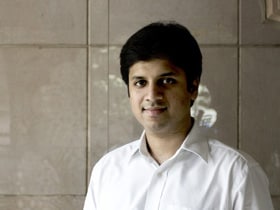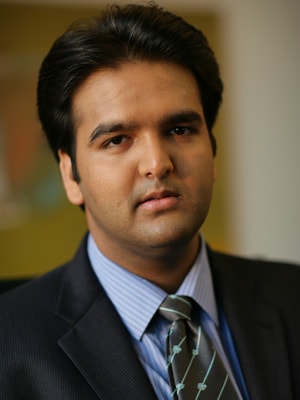
The Next Generation of Business Leaders
Here’s to the next generation of business leaders, all set to take centre stage

Megha Mittal:
All Dressed Up
When Megha Mittal bought the iconic but troubled German fashion house Escada in late-2009 for $85 million, most people thought it was a mere indulgence for the daughter-in-law of steel tycoon Lakshmi Mittal. Two years later, though, Megha has showed she means business.
Previously known for its glamorous evening gowns that have lost their sheen of late, the once-bankrupt Escada is fast evolving into a contemporary fashion destination. Megha, 34, has overseen new lines of clothing that promise trendy and sporty clothes for all occasions. This has been complemented by a 20 percent price cut and an investment of $30 million in changing the look of the stores and opening new ones. Fashion critics have also welcomed the change. Earlier this year, Escada Sport line, shown at the Berlin Fashion week, was well received.
Surely Megha, who is executive director and chairman of Escada, has taken some valuable lessons in turning around businesses from her father-in-law. She has retained the management and has empowered them in decision-making. On the other hand, she has set strict revenue targets. Helping her is Lakshmi Mittal’s trusted lieutenant Harak Banthia, who is executive director at Escada. The company is expected to turn profitable this year.

Shravin Mittal:
Call to Duty
Shravin Mittal, 25, son of Bharti group founder Sunil Mittal, joined the business last year at a time when Bharti spread itself globally and the domestic market saw cut-throat competition amidst the launch of 3G services. This is a new era for India’s largest telecom firm, and it has not been smooth sailing.
The junior Mittal is right there in the middle of it as a manager with Bharti Airtel International (Netherlands) BV. The Netherlands-based office oversees the group’s African assets acquired from Kuwait's Zain last year. The management of the assets will be crucial to the group’s performance.
This year, the group has posted weak quarterly results, showing that 3G launch costs and interest payouts for loans taken to buy third-generation airwaves have squeezed profits. On top of that, the African operations have been a drain on finances with flat growth and growing losses forecast to hit the group’s profits. The African operations will drag down the group’s margins and profits if not arrested quickly.
In late October, his twin brother Kavin joined the family business.
Shravin, who is mostly based out of Nairobi, reports to the general manager of the region.

Tara Singh:
Home Bound
Piya (28), Veer (27) and Tara (24), children of Max India group’s Analjit Singh are each being groomed to follow their dreams, under the mentorship of their father and other advisors. While Piya is being groomed in Max Healthcare, Veer is working on the family’s hospitality plans.
The youngest, Tara, has set her sights on a sector equally high on promise and risk: She is chief executive, Senior Living, Max Ventures, the family’s privately held company. As the nation urbanises, and professionals move location frequently, family equations are changing and there are opportunities for those of a pioneering bent. Tara has been studying best practices across the world and figuring out the best way to create her own offering, which could wind up being India’s first fully-fledged senior living community.

Anant Goenka:
The Systems Man
There’s an unusual modesty that accompanies Anant Goenka. And you know it isn’t pretence when he walks unostentatiously out of his workplace carrying those ultimate symbols of the middle class — a steel tiffin box, a bottle of water and a duffle bag that could otherwise be a suitcase. And heck no, he doesn’t get into a plush car parked outside the building his father created — instead, it is into a more sober Toyota Corolla.
So what explains the ‘middle-classness’? “I don’t like complexity,” he says with disarming candour. The Toyota, you figure, is the 30-year-old’s way of paying tribute to the Japanese automobile manufacturer’s obsession with building impeccable systems and processes. It’s what he’d like to see at work in the empire he will inherit from his father, the irrepressible Harsh Goenka.
Unlike other billionaire kids, he’s come through the ranks starting with a stint at Hindustan Unilever where he worked as an area sales manager on the outskirts of Mumbai. After various stints at business and engineering schools in the US, he was appointed deputy managing director at the family-owned business. His style, he says, is collaborative “because I’m still young. I’ve got to learn from people who’ve put so much into the business.”
So how come he isn’t seen on Page 3 clinging on to pretty young women like young men his age? “That’s more complex than running a business,” he responds with a straight face.

Anand Piramal:
God of Small Things
Anand Piramal, 25, is a man of detail. Since joining Piramal Realty in September as deputy chairman, he has taken a keen interest in the finer aspects of construction. So designs are vetted by him. He looks carefully at things like lighting, according to people who know him. He’s absolutely sure about one thing — Piramal Realty must be known first and foremost for its quality. All this is part of his vision to make Piramal Realty a leading Mumbai real estate player. So far, he has maintained a gruelling schedule and his sole focus for now is getting to know the business.
He clearly has big shoes to fill. Father Ajay Piramal developed Mumbai’s first mall Crossroads. Anand’s plans include the luxury housing space. On the anvil is an ambitious plan to create the ‘Gurgaon of Mumbai’ on the outskirts of the city. At the other end he also plans to carve a niche for the company in the affordable housing space.
His enthusiasm for affordable housing comes from philanthropic activities he has done for the Piramal Foundation. Early on, Anand, a Harvard Business School graduate, worked on Piramal e-Swasthya, a rural heathcare initiative that he set up with Nitin Nohria, dean of Harvard Business School. The initiative trained literate women in simple diagnostic techniques of minor ailments in Rajasthan’s Jhunjhunu district, reducing treatment costs to Rs. 30-50. Clearly, Anand’s heart is also in the right place.
Images: Megha Mittal: Charlie Gray.; Shravin Mittal: Vidyanand Kamat; Tara Singh: Madhu Kapparath for Forbes India; Anant Goenka: Manoj Patil for Forbes India
(This story appears in the 30 November, -0001 issue of Forbes India. To visit our Archives, click here.)




